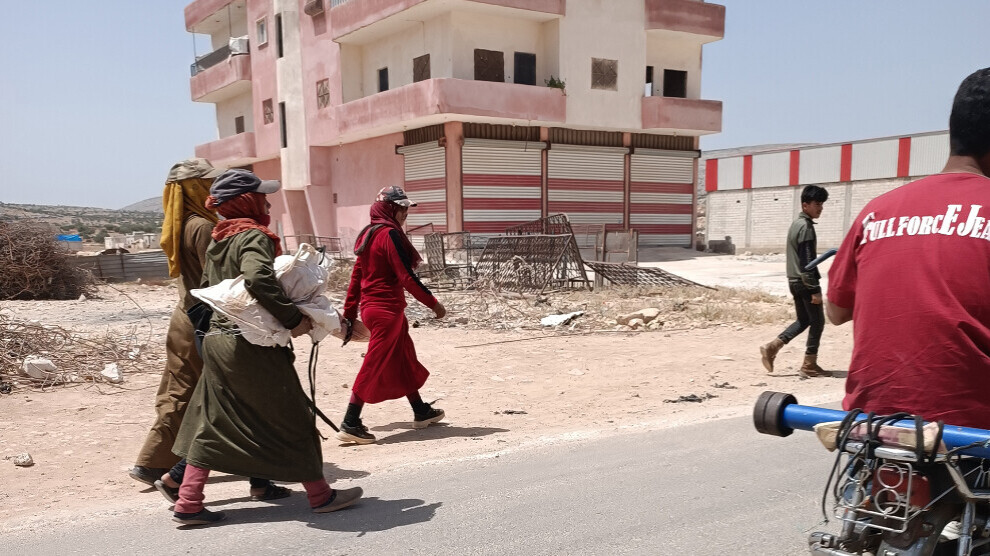Women get paid less than men in Idlib
In Idlib, women get paid less than men for the same job and they are exploited by employers.

HADEEL AL-OMER
Idlib- The poverty rate has reached a high level in northern Syria, according to the Syria Response Coordinators Team. 89,24% of families live below the breadline and 39,64% of families live below the poverty line. The deteriorating economic situation increases women’s participation in the labor force; however, working women face many difficulties at the workplace. They are not given equal pay for equal work.
Men get paid more
36-year-old Salwa Al-Jaa works at a milk processing factory in the town of Sarmada, north of Idlib. “Both women and men work at the factory. We work from early morning to 4pm. I thought we were given equal pay but then I learned that men get paid more than us,” she told NuJINHA.
‘I had to stay silent’
The workers at the factory are paid once a week. “Male workers are given 800 Syrian lira while female workers are given 500 Syrian lira. Since my family struggled financially, I could not quit my job or say anything. We are displaced people living in a camp. I looked for a job for a long time and finally found this job. Due to the ongoing conflict in Syria, you cannot find a job easily. I had to stay silent against the unequal pay because I have to earn a living for my family.”
‘Women should raise their voice’
28-year-old Rawaa Al-Surani works at one of the sewing workshops in Idlib. “I have been working for years. I was fired many times because I demanded equal pay for equal work. Women struggle to survive and have to work in difficult working conditions. They are subjected to economic exploitation. Women cannot demand equal pay for equal work because they are afraid of being fired. Women should make more efforts to get equal pay for equal work. All female workers in the region should raise their voice against unequal pay.”
‘Women’s participation in the labor force should be supported’
Social counselor Safaa Al-Bayoushi thinks that the gender pay gap has negative effects on women's livelihood and psychology. “The gender pay gap causes many women to quit their job. Women’s participation in the labor force should be supported. Women should get equal pay for equal work.”
‘Women struggle alone’
Noting that the gender pay gap is also a problem in developing countries, she said, “Employers pay women less because they know that women have to work to earn a living for their families. In Syria, women suffer from the ongoing war, displacement, violence against women and the gender pay gap. They struggle alone to meet their most basic needs. They do their best to stand on their own legs and raise their children.”
